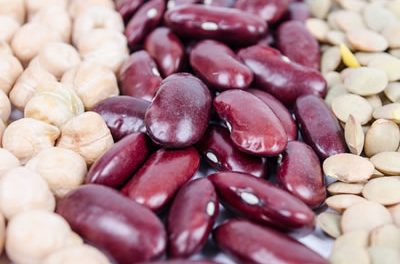Eating less processed food targets two related goals: maximizing your consumption of health-promoting nutrients and minimizing unhealthy additions to your diet.
Examples of foods with little or no processing include whole grains, plain fresh or frozen vegetables and fruits, cooked beans and fresh poultry, seafood or meats.

By choosing whole grains instead of refined grains, you gain extra fiber, vitamin E, magnesium and protective natural compounds called polyphenols.
Some whole grains take longer to cook than their refined forms, but choices like bulgur, whole-wheat couscous, quick-cooking brown rice and quinoa are ready quickly.
Food processing does not have to be bad. Vegetables and fruits that are frozen without high-fat or high-sodium sauces, or added sugar, are often called minimally processed, because freezing does not lead to nutrient loss and allows you to include these healthful foods conveniently and economically.
Canning and cooking can make certain nutrients more easily absorbed by the body. For example, canned tomatoes are a good source of highly absorbable lycopene, a compound that may protect against cancer.
Canned legumes like black beans and kidney beans make these slow-cooking nutrient gems ready in an instant. Look for beans, tomatoes and others with no added salt; otherwise, rinse in a sieve and you'll at least substantially reduce sodium.
Limiting processed meats such as sausage and hot dogs is important, since consuming them on a regular basis increases risk of heart disease, type 2 diabetes and colon cancer.
The bottom line is to reach for foods in a form lowest in health negatives (like sodium and excess calories and unhealthy fat) and highest in nutritional positives.
You can make them delicious and healthful with herbs, spices, onions, garlic, citrus juice and other flavorings easily and stay budget-friendly.
0









